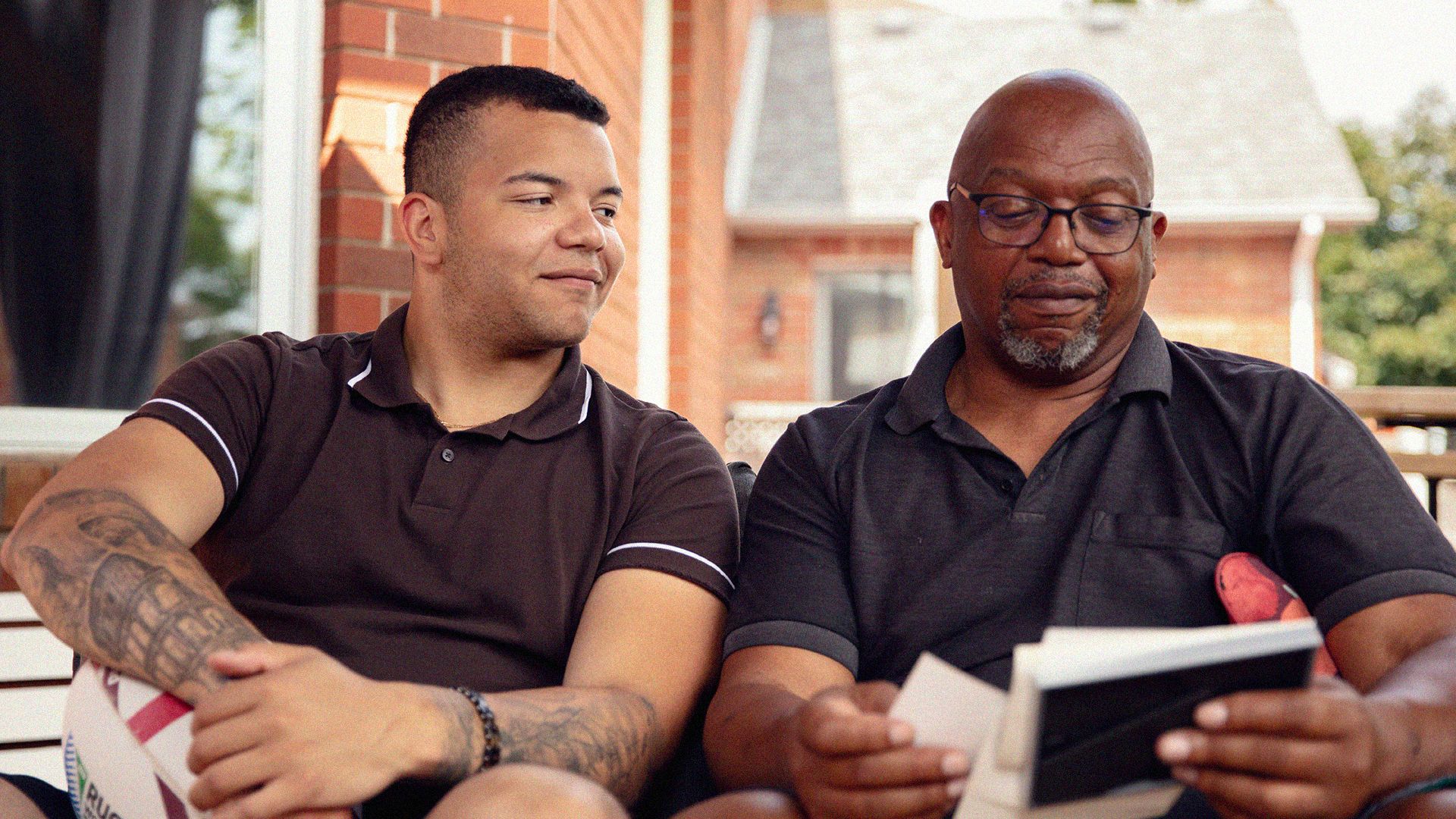

Kevin’s story: Prostate cancer shouldn’t be a family secret
Kevin Trotman was first introduced to Movember by his son Ryan, who started fundraising during university. He and his rugby team got involved, in part, to raise awareness for prostate cancer; a disease that had touched the Trotman family before.
Lost tests led to a lucky second look
Kevin was diagnosed with prostate cancer when he was 49 years old. He had started getting Prostate-Specific Antigen (PSA) tests from his doctor a few years earlier. Given Kevin’s Caribbean heritage, and the fact that he was over 40, it made sense to start keeping an eye on things.
At the start of one summer, Kevin had gotten a PSA test done during his usual doctor’s visit. Come October, he got a call from his doctor saying they didn’t have any record of the results, and hoped Kevin could come back in to re-do the various tests. Wanting to be in the know, Kevin obliged and had his PSA re-tested. With the full workup done, Kevin and his wife went off on a cruise holiday, minds at ease. His mother was staying with the kids. While on the cruise, Kevin received a call from his mother, telling him the doctor had called and wanted to speak with him. “Never a good sign,” Kevin recalls.
Hearing the word cancer
The doctor had found the original PSA results from the start of the summer, and compared to the recent test he took just before the cruise, had increased from 0.5 to 5.5. The doctor was concerned and wanted to do another test when Kevin got back from his vacation. Two weeks later, the third test showed a result of 6.5. “My engine light was definitely blinking,” as Kevin put it.
From there, the full diagnosis came. “All I heard was cancer. After that, it just sounded like the Charlie Brown voice in my ear,” Kevin remembers. This doctor had the gift of putting Kevin and his wife at ease. Later, he walked them through the options for treatment. “I felt like I was looking at my mortality at this point. At the same time, I was reminded of a teacher who said, the worst thing in the world to do is nothing. If you want to fail, do nothing. You can go through life that way, but I wasn’t going to go down without fighting,” Kevin said.
Prostate cancer kept as a family secret
It wasn’t until after Kevin’s diagnosis, when his older brother found out he too had prostate cancer, that they heard that other relatives had gone through prostate cancer as well. There was a family history they had known nothing about. He asked his mother why she didn’t tell him that his uncle had previously had prostate cancer. “He didn’t want to talk about!” she said.
" Black men treat prostate cancer as more of a threat to their manhood, than as a disease. "
With Black men and men of African heritage experiencing higher rates of prostate cancer, and diagnoses of more aggressive disease, Kevin is now on a mission to raise awareness, encouraging conversation within your own family, and with your doctor to know your risks.
Knowing your risk is empowering
“All knowledge, good or bad, is worth knowing. It’s important for each and every one of us to understand our own risks. We’re not powerless. We can actually do something. But it’s your decision. Empowerment means looking after yourself, starting that conversation with your family or your doctor. If caught early enough, and at the right stage, prostate cancer is treatable.”
Today, with essentially undetectable PSA levels, Kevin continues to share his story, encouraging open dialogue about health in his own family, in the hopes that the next generation won’t keep prostate cancer in the shadows.
40 or over and a Black man or have African ancestry? Early detection of prostate cancer is key. Talk to your doctor. Find out more about your risk.